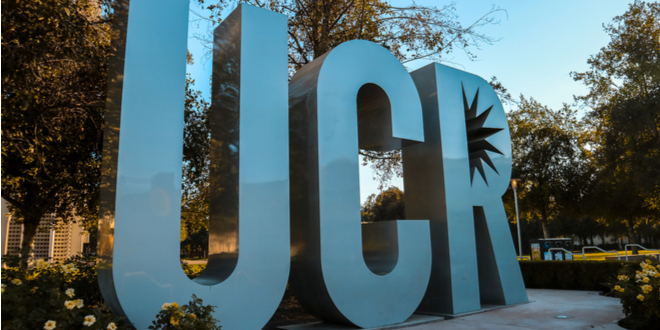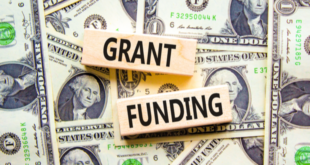A research institute affiliated with UC Riverside is under fire from some UC faculty and staff, who are calling for an investigation into the eight-year relationship between the two entities.
Beacon Economics LLC, a Los Angeles-based private consulting firm, has been researching and publishing economic reports under the name UC Riverside School of Business Center for Economic Forecasting and Development.
More than 100 University of California faculty and staff members expressed their concerns about that arrangement in an open letter sent to the UC Board of Regents dated Feb. 13.
“It’s an embarrassment to the university, and it needs to be stopped,” said Dylan Rodriguez, professor of media and cultural studies at UC Riverside and a former president of the school’s academic senate.
“There are a lot of things wrong with it, but the biggest is the lack of faculty oversight,” said Rodriguez, one of the letter’s signees. “There has to be some academic review, but in this case there’s none.”
Since 2015, Beacon has had an agreement with the UC Board of Regents under which the research firm produces studies, often quoted in the media, that are attributed to the School of Business Center for Economic Forecasting and Development at UC Riverside.
Besides the use of that name, the agreement allows Beacon to employ the UC Riverside logo on its reports, as well as other university trademarks.
In exchange, Beacon Economics pays the university a 10 percent royalty on revenue from the production of those reports, money that typically comes from corporations that sponsor Beacon’s research.
Critics maintain that corporate sources use those studies to promote their own interests, a conflict of interest.
Because it’s a private company, Beacon doesn’t have to comply with the California Public Records Act, so it’s not required to disclose financial information, the letter notes.
“Without funding transparency, or real faculty oversight, to enforce academic rigor, this arrangement has allowed corporations and industry groups to underwrite Beacon reports attacking proposals [meant to] improve the life of working Californians,” the letter states.
That document, which was signed by faculty members from eight UC campuses, is being reviewed by the board of regents. It cites a Beacon report, paid for by elements of the fast-food industry, which concludes that fast-food prices would go up 20 percent or more if fast-food employees are given a voice in determining how much they’re paid, an assertion the letter’s signees dispute.
“Fast-food companies are spending tens of millions of dollars to promote the findings of this report, which they funded,” the letter claims. “They are trying to convince voters that empowering fast-food workers – most of them women and most of them Latino, [African-American] or Asian – means a 20 percent food tax.”
Rodriguez, a UC Riverside faculty member for 22 years, put it more bluntly.
“That report was just propaganda for the fast-food industry,” he said. “We don’t want UC Riverside’s name attached to that report.”
Gov. Gavin Newsom on Sept. 5 – Labor Day – signed into law the Fast Food Accountability and Standards Recovery Act, which authorized the creation of a fast food council to be made up of labor and management officials from within the fast-food industry.
That group would establish minimum standards for workers, including wage scales, health and safety regulations, protection from discrimination, and the right to take time off from work for legitimate reasons.
The law “gives hardworking fast-food workers a stronger voice and a seat at the table to set fair wages and critical health and safety standards across the industry,” Newsom said of the legislation, which was to have gone into effect Jan. 1.
But in December, a Sacramento County judge placed a temporary stay on the legislation after a lawsuit was filed by Save Local Restaurants, a trade organization. That group, which is reportedly using the Beacon fast-food study to help make its case, is trying to get the measure on the November 2024 ballot, according to the coalition’s website.
Another example of Beacon studies that were slanted in favor of the corporate interests that paid for them was a report, funded by Lyft, that supported the elimination of workplace rights associated with “ride-hail drivers,’’ defined as any driver hired by someone to take them to a specific place.
The faculty members leveled the same accusation against a Beacon study paid for by the California Restaurant Association that was critical of increasing the minimum wage.
Beacon founder Chris Thornberg stands by his firm’s work, dismissing its critics as “rogue professors” making up charges against Beacon that are “absolutely false.”
As a result of recent news coverage regarding the UC Riverside-Beacon partnership, the Service Employees International Union – which represents some fast-food workers – has people talking about Beacon, Thornberg noted.
“I think that’s amazing and, to be honest with you I’m a little proud of it,” Thornberg said “It tells me they think we matter. It’s a little like being in the Mafia. If the Don orders a hit on you, then you must be important.”
Beacon’s fast-food study is based on “straight answers,” but some members of the UC faculty have chosen to turn that into a political issue, according to Thornberg.
“It’s absolute nonsense,” Thornberg said. “What they’re alleging is ridiculous. We’re straight shooters and we’ve done a lot of good work over the years, We aren’t anti-union. We’ve had 10 to 12 contracts with unions. We’ll do research for anyone.”
Besides establishing “meaningful faculty oversight” of the Center for Economic Forecasting and Development, the faculty members are asking for an investigation into the agreement that allows Beacon to license UC Riverside’s name, and for Beacon to stop using all UC Riverside trademarks until that investigation is completed.
In the meantime, critics of the UCR-Beacon arrangement and the Center for Economic Forecasting and Development will wait for the board of regents’ response to the Feb. 13 letter.
“I think it’s unfortunate that UCR has to deal with this issue because it calls into question the school’s true mission, which is being a credible research institution,” Rodriguez said. “I hesitate to predict how all of his will turn out, but I can tell you it’s starting to generate a lot of interest on campus. People are getting concerned about it.”
 IE Business Daily Business news for the Inland Empire.
IE Business Daily Business news for the Inland Empire.


